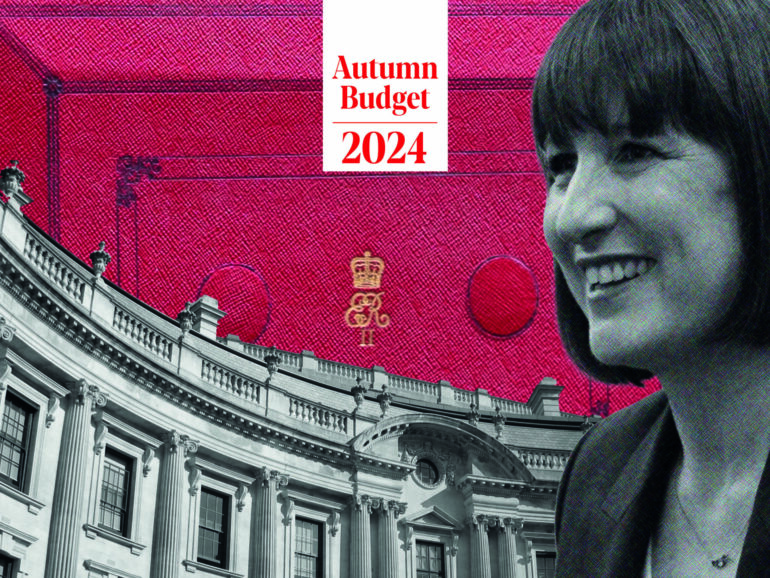The Government’s Autumn Budget 2024 has come under fire from housing experts and industry groups for failing to include specific measures aimed at supporting first-time buyers in the UK.
While the Budget outlined a strategy to boost overall housing supply, including a £5bn investment in new affordable homes, critics argued that more direct assistance was needed to help prospective first-time buyers overcome the significant barriers they face in entering the property market.
For example, Chancellor Rachel Reeves did not take steps to extend the Stamp Duty threshold freeze implemented by the previous Government, or introduce a replacement for the Help to Buy scheme.
REACTION:
Melanie Spencer, sales and growth lead at Target Group:
“While capital gains tax did remain unchanged for residential properties, the increase in stamp duty for second homes will have caught many landlords by surprise.
“While there’s an argument to say this will give first-time buyers less competition from investors, there is real concern around the ramifications for the private rental sector.
“With increases in supply forming a key part of plans, as well as changes to Stamp Duty and taxation, there’s no question that lenders and all parties across market need the right technology and systems in place to meet demand and streamline the house buying process.
“With a lack of real support to help buyers today though, technology will continue to play a role in helping lenders to innovate and venture into new product offerings, to help better serve consumers and keep the market moving in lieu of immediate and tangible government support.”
John Phillips, CEO of Spicerhaart and Just Mortgages:
“Today’s Budget was an opportunity for Labour to show that its plans for housing are far more than just increasing supply.
“Sadly this wasn’t the case, with a real lack of support for buyers and the wider housing market.
“While increasing supply is necessary, we also need tangible support right now to increase routes to homeownership and reduce affordability pressures, particular for first-time buyers.
“While not mentioned, it seems the Stamp Duty relief will still end in April, removing important financial support for buyers and downsizers, while creating another cliff-edge deadline for the industry to deal with.
“We will have to see if the almost instant increase in stamp duty on second homes does indeed increase transactions as the Chancellor hopes, or whether as some worry, it will impact rental supply further and send rents higher – adding further pressure to those trying to save for deposits.
“With the Budget now done, we have to hope that some of the waiting and seeing will now clear and we see buyers moving forward with plans.
“Plus, with the consensus being that we will still see another cut to the base rate this year, we will hopefully see some activity from both lenders and potential buyers.
“It’s a shame though that it is left to the industry once again to do the heavy lifting to support buyers and keep the housing market moving.”
Karl Wilkinson, CEO of Access Financial Services, said:
“The freeze in fuel costs, National Insurance, VAT and income tax is all potentially good news for first-time buyers who are thinking about their first mortgage.
“Still, the huge disparity between salaries and the size of deposit usually required, will continue to make first-home acquisition impossible for many first-time buyers without a zero-deposit mortgage to help them.”
Joe Pepper, UK Chief Executive Office at PEXA:
“Committing to the building of 1.5 million homes with a £3.1bn investment is fantastic for first time buyers and a sizable investment in affordable homes is welcome as a longer-term fix of the short supply of housing stock.
“Doing so will naturally create economic growth and stimulate other industries in a wider sense.
“But there is a huge gaping problem that has not been addressed – how are we going to actually deliver this benefit, if the back end infrastructure supporting the housing market, both for remortgaging and sale and purchase, is simply not fit for purpose?
“The Government said it would ‘put the right policies in place’ to make this a reality, but it has missed one key detail: the urgent need for government commitment to support private investment in the modernisation of technology to make any of this a reality, and to actually benefit both mortgage market professionals and consumers.”
Matthew Parden, CEO of Marygold & Co, said:
“The only certainties in life are death and taxes, with the government set to increase the rate of Capital Gains Tax and Employer’s National Insurance. The UK’s tax gap currently stands at roughly £40bn, with 60% of that falling at the door of small businesses.
“Marygold’s data reveals that almost two million business owners and self-assessment workers make the fundamental error of assuming that revenue earned is the same as revenue owned. Small business owners need to get ahead of the expected tax rises by visualising this distinction, making their new tax liability work within their budget and establishing dedicated money pots aligned with the new tax regime.”




